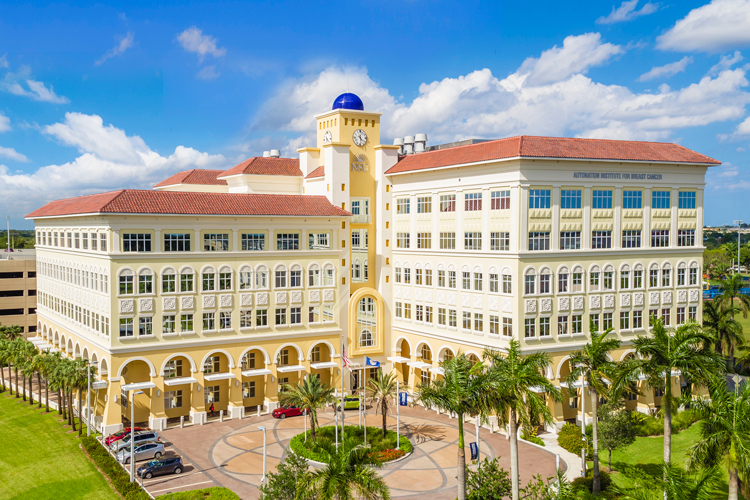The Rumbaugh-Goodwin Institute for Cancer Research, Inc. (RGI) is a not-for-profit research organization founded by Dr. James Reyniers in 1959. Historically, the genesis of RGI was through the LOBUND Institute of the University of Notre Dame, where Dr. Reyniers developed barrier-containment technology. This advance enabled the breeding of small germ-free animals with eventual application of the plastic bubble for immunodeficient patients.
Dr. Reyniers left Notre Dame in 1959 to establish the Germfree Life Research laboratories in Tampa, Florida. For the next ten years they concentrated on understanding the relationship of viruses to cancer. Rapid development of knowledge in the field of tumor immunology resulted in the laboratories refocusing their efforts on the role of immune factors in spontaneous leukemias, mammary tumors, and autoimmune diseases such as multiple sclerosis.
The facility subsequently relocated to Fort Lauderdale, Florida, in 1969, where it was renamed the Leo Goodwin Institute for Cancer Research. There, in response to the National Cancer Act of 1971, the Institute established barrier-containment rooms which, under contract with National Cancer Institute, provided large numbers of specific pathogen-free rodents to research laboratories. We utilize these rodents today in our research studies and for its biotechnology services that help to support these programs.
The excellent animal facilities of the Institute enabled it to become one of the first laboratories to produce large quantities of anti-tumor monoclonal antibodies for use in clinical trials. In our current facility we continue to provide biologics to universities and the pharmaceutical industry antibodies for diagnosis, therapy, and research.

